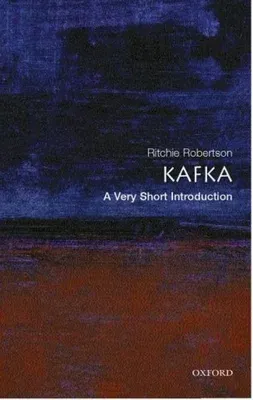Ritchie Robertson
(Author)Kafka: A Very Short IntroductionPaperback, 1 September 2005

Qty
1
Turbo
Ships in 2 - 3 days
Only 2 left
Free Delivery
Cash on Delivery
15 Days
Free Returns
Secure Checkout

Part of Series
Very Short Introductions
Print Length
136 pages
Language
English
Publisher
Oxford University Press, USA
Date Published
1 Sep 2005
ISBN-10
0192804553
ISBN-13
9780192804556
Description
Product Details
Author:
Book Format:
Paperback
Country of Origin:
GB
Date Published:
1 September 2005
Dimensions:
17.37 x
11.18 x
0.91 cm
ISBN-10:
0192804553
ISBN-13:
9780192804556
Language:
English
Location:
Oxford, England
Pages:
136
Publisher:
Series:
Weight:
131.54 gm